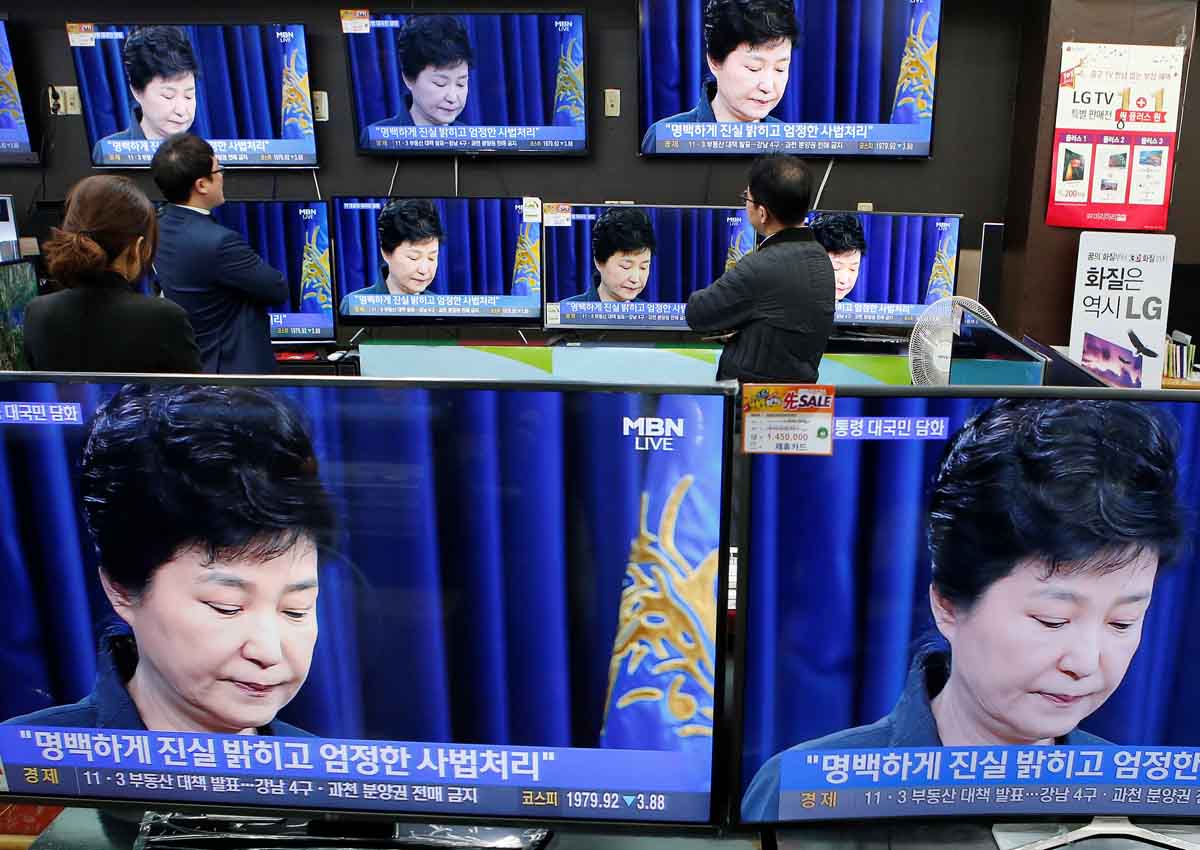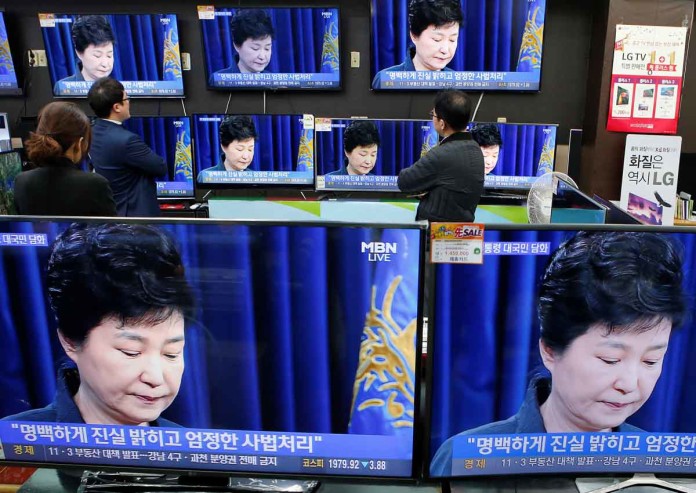As President Park Geun-hye on Friday expressed willingness to be investigated over the Choi Soon-sil scandal, debate is moving toward the formalities and methods on what will be the first-ever investigation into a sitting leader.
The special prosecutors’ team in charge of the scandal is expected to examine possible scenarios and coordinate the procedure with Cheong Wa Dae, the Justice Ministry and the Supreme Prosecutors’ Office.
The probe should focus on whether Park was behind the speedy launch of two culture and sports funds with corporate donations totalling 77.4 billion won ($67.7 million), over which Choi and former top Presidential Secretary An Chong-bum are suspected to have peddled influence. Other potential charges include whether the president allowed confidential documents to be leaked to Choi and for her to meddle in other state affairs.
The prosecution has in the past questioned retired presidents and first ladies by sending written forms, making visits or summoning them in person.
Former President Lee Myung-bak, for instance, underwent an investigation as the president-elect in 2008 over stock-rigging allegations through a three-hour interview outside the prosecutors’ office. After his term ended, late President Roh Moo-hyun appeared at the prosecutors’ office in 2009 to be probed for more than 10 hours for a graft scandal involving a close businessman.
The prosecution will be cautious about its limited options due to sensitivities surrounding a possible calling in of Park. But given the gravity of the scandal, it may face public backlash if it opts for a written inquiry.
Civic groups including the progressive People’s Solidarity for Participatory Democracy warned that a written survey would only result in watering down the president’s accountability, whereas the right-leaning Citizens United for Better Society suggested a special investigation scheme.
While raising the need for the president to face the probe, prime minister nominee Kim Byong-joon also called Thursday for “prudence in the procedure and method.”
The Constitution exempts the president from being prosecuted. But a local bar association and many of those in legal circles have argued that in light of the issue’s urgency, the prosecution should undertake a probe now to obtain evidence and pursue a trial after Park’s term ends.
A group of 69 criminal law professors issued a statement Friday, saying there is “no sanctuary” for any Korean under the law, and given the mushrooming allegations surrounding Park, the probe is not only possible, but essential.
“An accomplice can be both probed and prosecuted whether or not the president is in office so it is wrong to skip the president-related parts in the investigation process,” they said.
“To secure evidence for prosecution after her retirement, the investigators should carry out suspect questioning, reference witness inquiries and confiscation and search as long as it does not create an obstacle for the president’s state management.”
Earlier in the day, People’s Solidarity for Participatory Democracy lodged an indictment against Park, arguing the president is the art and part of Choi.
Another focal point is whether an independent special investigation will be set up, as Park expressed her willingness to accept the plan.
The ruling and opposition camps have been at loggerheads over the issue. But after Park’s remarks, Rep. Chung Jin-suk, floor leader of the ruling Saenuri Party, showed a more flexible stance at a meeting later in the day with new presidential Chief of Staff Han Kwang-ok, saying the party is willing to agree to the opposition’s demand for an independent team if “political neutrality is guaranteed.”
Rep. Choo Mi-ae, chair of the main opposition Democratic Party, once again urged the launch of the special investigation headed by an opposition-endorsed prosecutor, calling it a “minimal precondition and start” to inquire into the president.


 Photo Gallery
Photo Gallery



